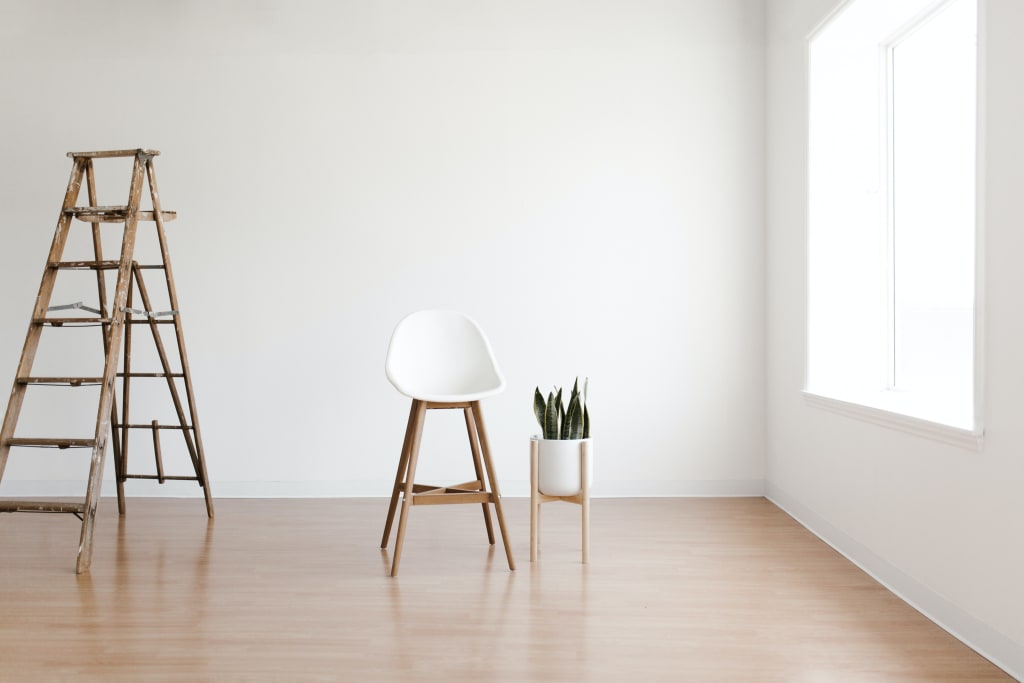
Introduction
Minimalism is an art, a lifestyle, and a philosophy. It's about finding what works for you and doing it. Minimalists don't need to follow the same rules or live in the same way.
They just share the desire to live with less stuff that's not adding value to their lives. There are many different forms of minimalism. Some people have more space than others do, some focus on different values than others do, and some people make drastic changes overnight while others take a slow transition over time. But at its core, minimalist living is about getting rid of unnecessary items so that you can focus on what really matters.
What is Minimalism?
Minimalism is a lifestyle that focuses on the things you value most. It's about living with less so you can focus on what's important to you.
Minimalists are not necessarily apathetic or non-committal. They're just more aware of their values and priorities, which in turn allows them to make better choices.
Minimalists are often more focused because having fewer distractions means they can concentrate on what matters most. They can enjoy life in ways others cannot because they have fewer commitments and responsibilities pulling at their time and energy.
The Benefits of Minimalism
Minimalism can provide numerous benefits, including:
Decluttering your life. When you have fewer possessions, it is easier to keep track of what you do and don't own. As a result, you will also be less likely to lose things as often.
Focusing on the things that are important to you. If there's something that isn't worth keeping around, then let it go. Minimalism encourages you to focus on only the things that matter most in your life so that when an object comes into it, whether it be furniture or clothing, it will hold meaning for longer.
By reducing clutter (physical items), there's more room for meaningful experiences with others or alone as well as less stress caused by trying simultaneously to manage multiple responsibilities such as schoolwork and personal relationships outside of school.
How to Live a Minimalist Life
The first step to living a minimalist life is to declutter your home. This is where it all begins.
Once you've done that, get rid of things you don't need, use or like. No matter how much they cost or who gave them to you. Ask yourself: "Does this item bring me joy?" If the answer is no, then it's time for an exit strategy.
If it's broken, toss it out as well. If something doesn't work properly, why keep it around? And if an item has been broken for months and still hasn't been fixed by its owner/maker/designer then chances are good that it’s never getting fixed at all. So letting go now rather than later when its replacement costs more than what was originally spent on it is the better option.
Is Minimalism Good for Mental Health?
When you first hear about minimalism, the idea of getting rid of all your possessions can be scary. But think about it this way. When you have a lot of stuff, you're not just dealing with physical clutter, there's also mental clutter.
You might find yourself constantly thinking about things that need to be done around the house or worrying about what will happen if you get sick and can't work anymore. With less stuff around, it's easier to focus on what's important in life. Spending time with family, travel experiences and other non-material items that give meaning to our lives.
What are the Cons of Minimalism?
Minimalism isn't for everyone. Maybe you just don't like it, or maybe the idea of spending your life surrounded by less stuff is overwhelming and intimidating. If minimalism sounds like something that might be right for you, but you're worried about how hard it will be to maintain, then here are some other things to consider.
Keeping up with changes can be hard if you've filled your house with belongings before starting a minimalist lifestyle. For example, when you first started decluttering your home , you will have plenty of baggage from previous years' worth of shopping sprees that need to go away.
This could take time and effort, so find an opportunity where you can give yourself permission not only to get rid of these things but also organize them neatly so they're easy to replace when necessary.
Maintaining this approach requires patience and a willingness to adapt over time as needs change along with personal tastes/interests/lifestyles etc. This may lead some people who try minimalism out again due to difficulty finding motivation or perhaps even feelings associated with loss due to changing circumstances such as moving into retirement homes.
Minimalism doesn't have to be so Extreme
Minimalism is a personal journey, and it doesn't have to be so extreme. You don't have to live in a tiny house in order to embrace minimalism. In fact, there are many ways you can incorporate minimalism into your life without giving up all of the things that make you happy or all of your possessions.
"Minimalist" is an umbrella term for people who choose to live simply. Not just because they don't want clutter, but also because they want more time and money. They need less stuff around them so they can focus on what matters most like relationships with friends and family, experiences (good food/travel), and creativity/intellectual growth (reading books).
Conclusion
The bottom line is that minimalism isn’t for everyone and there are many ways to live it. You may be surprised by how much you don’t need or want in life, but if the idea still seems overwhelming, don't worry. It takes time for anyone to get into a minimalistic mindset.
Start small by doing one thing per week (like decluttering your closet) until it becomes a habit and then take on more challenges from there. Minimalism is about making choices that work for you and your lifestyle, so don’t let anyone tell you what those should be.






Comments
There are no comments for this story
Be the first to respond and start the conversation.